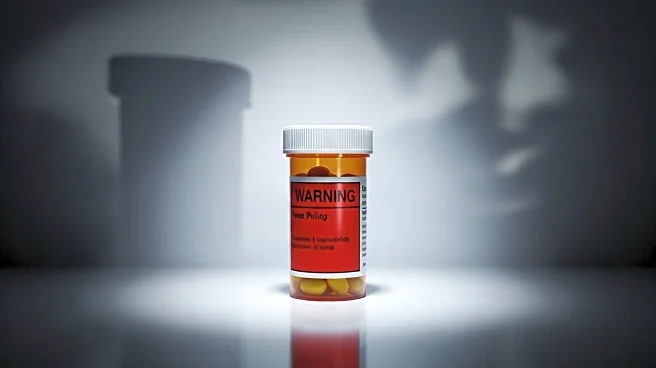What is the story about?
What's Happening?
President Trump has announced plans to impose a 200% tariff on imported pharmaceuticals, aiming to encourage domestic production and reduce drug costs. This move marks a significant shift in U.S. trade policy, as imported medicines have traditionally entered the country duty-free. The proposed tariffs could disrupt supply chains, increase drug prices, and lead to shortages, particularly affecting generic drugs. Analysts suggest that while the tariffs aim to bolster U.S. manufacturing, they may have adverse effects on consumers and the healthcare industry.
Why It's Important?
The proposed tariffs on imported drugs could have widespread implications for the U.S. healthcare system. Higher drug prices and potential shortages may disproportionately affect lower-income households and the elderly, who rely heavily on affordable medications. The move also highlights the ongoing trade tensions and the administration's focus on national security through economic measures. Pharmaceutical companies may need to adjust their supply chains and manufacturing strategies, potentially leading to increased costs and operational challenges.
What's Next?
The administration plans to delay the tariffs for up to 18 months, allowing companies to stockpile medicines and shift production to the U.S. Analysts predict that the tariffs may not be fully felt until 2027 or 2028 due to existing inventories. The industry is awaiting further details on potential exemptions for certain drugs, which could mitigate some of the impact. The administration's focus on national security may lead to additional measures to encourage domestic production and reduce reliance on foreign suppliers.
















